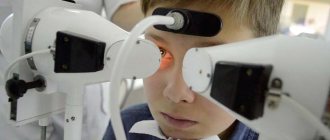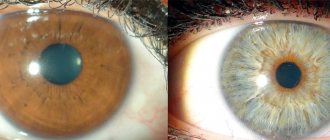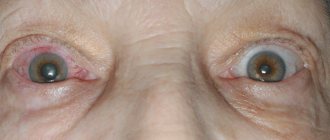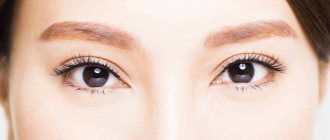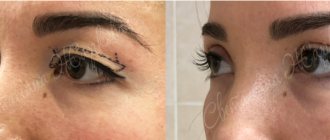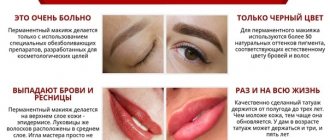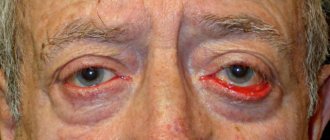Increasing the incision of the eye along the line of the upper and lower eyelids is called canthoplasty, from the Greek cantos - angle. Blepharoplasty also works on the eyelids, but the purpose of the intervention is different - to hide signs of age-related changes, tighten overhanging skin folds, and get rid of fatty hernias. The main task here is to make the look visually more open and the angle of the neckline graceful. As a result, the impression of a youthful open gaze is created, an emphasis is created on it, the depth and color of the iris is emphasized. Canthoplasty is often combined with blepharoplasty to obtain a complex effect: rejuvenation and aesthetic perfection.
How to enlarge the eye section
In the literal sense of the word, it is physiologically impossible to make it larger - the size is determined genetically. The doctor can:
- excise part of the skin of the upper eyelid;
- remove the fold above the upper eyelid (more common in Asian faces);
- do a lift along the eyelash edge;
- change the shape and diameter of the palpebral fissure by working with the eyelids.
In each case, the surgeon’s manipulations are variable. Schematically, the procedure looks like this.
- Anesthesia is performed (local anesthesia or general anesthesia).
- An incision is made.
- The necessary tissues (skin, fat, muscle) are excised.
- Cosmetic stitches are applied.
Discussion: How do stars change the shape of their eyes?
And it's possible! It turns out that surgery to change the shape and shape of the eyes is not uncommon. Moreover, there are even indications for this kind of intervention. Which celebrities took the plunge and was it beneficial? BeautyHack has collected stellar examples of changing the shape of the eyes.
Andrey Iskornev
Plastic surgeon
“You can change the shape of your eyes with upper eyelid blepharoplasty. The operation is most often performed on patients aged 35-38 years. It involves removing excess tissue from the upper eyelid area. After it, a seam remains in the area of the orbital fold. Excess skin can be true or false. The latter are associated with drooping eyebrows. Therefore, it is important for a specialist to determine what is more important for the patient: forehead surgery or eyelid surgery.”
Uma Thurman
For celebrities, going to the surgeon is like a routine visit to the dentist - it seems that they visit the former even more often. The shape of the nose, face and eyes change, as if by waving a magic wand. Once again, a “new” face is on the way!
Uma Thurman has long been among the adherents of naturalness. A few years ago, she joined the opposing “camp” by changing the shape of her eyes, the shape of her chin, and injecting fillers into the area of her cheekbones and nasolabial folds.
Jennifer Lawrence
Slightly drooping eyelids have long been the hallmark of the Hunger Games star. True, many believed that this feature adds several years to Jennifer. The actress decided to correct this deficiency and decided to undergo blepharoplasty. Fans are sure: this is the very case when a visit to the aesthetic surgery clinic was beneficial.
Blake Lively
Blake Lively was caught undergoing two “upgrades”: mentoplasty – changing the shape of the chin, and blepharoplasty – eliminating the looming eyelid. They say that Ryan Reynolds' wife also slightly adjusted the shape of her nose (read the rules for a happy marriage of actors here). Even so, the surgeons did everything to make it look as natural as possible.
Victoria Britko
Dermatocosmetologist
“There are indeed indications for changes in the shape and shape of the eyes: hernias, the presence of age-related changes, asymmetry, deformation after injuries, visual swelling of the upper eyelid, “overhanging upper eyelid,” edema (bags). In plastic surgery, this is done using blepharoplasty. Its varieties include: canthopexy - elimination of the “sad” look, correction of the Asian eye shape, treatment of exophthalmos. Blepharoplasty of the upper and lower eyelids is a separate procedure. In cosmetology, you can slightly raise your eyebrows and eyelids, making your gaze more open, using botulinum toxin by relaxing parts of the orbicularis oculi muscle. Another way is threads. Mesotherapy drugs are used to prevent hernial formations, skin sagging and the appearance of wrinkles - laser rejuvenation methods.”
Kylie Jenner
Kylie and “the company” are regulars at plastic surgery clinics. The model and young mother made her first visit to a specialist at 17. And then everything was in a blur: lips, cheekbones, nose. For a long time, Kylie herself did not admit to all the manipulations with her face, justifying her love for contouring. We don't believe it!
Renee Zellweger
Bridget Jones has always been open to beauty experiments. Need to gain 20 kg for a role? No problem (read about stars who have overcome excess weight here)! Change your hair color - yes please. The fact that she would turn to surgeons came as a complete surprise to fans of the celebrity. At one point, Renee appeared in public with a “new” face. Not only the shape of the eyes has changed. The actress claims that there was no surgical intervention. In response to this, experts only smile skeptically.
Ariana Grande
Nickelodeon star Ariana Grande, despite her young age, also managed to go under the knife for the “open” look. The operation changed the girl a lot. Although the transformation can also be explained by the fact that she simply matured.
Nuances of the procedure
The period for performing a simple intervention is half an hour; with combined techniques (when several tasks are performed simultaneously), the time increases to 2 hours.
When the patient can leave the clinic largely depends on the type of anesthesia. With local anesthesia - after 3 hours, with general anesthesia after 5-6 hours or the next day.
How much surgery to enlarge the eye shape costs depends on the chosen technique and the scope of the intervention. The price is negotiated before manipulation and remains unchanged.
Eye enlargement
Not only representatives of the East and people from Asian countries strive to change the shape of their eyes. Many Europeans resort to the help of plastic surgeons to correct inherited appearance flaws. Modern technologies make it possible to radically change the shape of the eyes; surgery can change the inclination of the palpebral fissure, its shape, horizontal or vertical width.
Canthoplasty
A popular surgical procedure to change the shape of the eyes is canthoplasty. The purpose of the operation is to simulate the inclination of the palpebral fissure through plastic surgery of the lateral canthal tendon. This thin tendon fixes the outer corners of the eye to the periosteum, determining their height and the direction of the eye section. By changing the length of the tendon, the lateral canthus can be raised, thereby changing the inclination of the palpebral fissure and, to some extent, its shape.
Such operations are performed endoscopically, leaving no scars on the skin. A similar principle of changing the shape of the eye is used in the formation of the almond-shaped palpebral fissure. Many women consider this eye shape to be more sexy, beautiful, and expressive. Surgical intervention gives an excellent effect to patients with naturally round and wide eyes.
Changing eye height
A number of patients have the opposite aesthetic problem - their eyes are too narrow by nature. Operations aimed at vertical expansion of the palpebral fissure can correct the situation.
Manipulations aimed at changing the height of the eyes are carried out on the lower or upper eyelid. In the first case, the surgeon removes or shifts the fatty tissue of the lower eyelid, thereby modeling the curve of its eyelash edge. During the operation, you can get another change that has a positive effect on facial aesthetics. We are talking about creating a “glamour line”, an S-shaped curve of the lower eyelid contour.
When enlarging the eyes, plastic surgery of the upper eyelid fixes the tendons and muscles that lift the upper eyelids. It is very important here to prevent excessive correction, since it can lead to a serious complication - incomplete closure of the palpebral fissure. If the operation is performed by an experienced specialist, there are no complications, rehabilitation is quick, and surgical intervention provides lifelong results.
Eye dilation
Another option for eye enlargement surgery is widening the palpebral fissure, that is, enlarging the eyes due to its horizontal size. The desired effect is achieved by making a small cut in the skin in the area of the outer and/or inner corner of the eye. According to indications, these manipulations can be supplemented with epicanthoplasty or canthoplasty.
When enlarging the eyes due to their horizontal size, it is extremely important to observe the measure. Excessive correction will cause the eyelids to look unnatural after surgery. This is explained by the fact that the skin on the newly formed edges of the lower and upper eyelids is devoid of eyelashes, which does not correspond to nature’s intentions. For this reason, experts do not recommend widening your eyes by more than three to five millimeters.
At the Soho Clinic (Moscow) you can get an individual consultation with a plastic surgeon and learn about all operations aimed at modeling the shape of the eyes, the inclination of the palpebral fissure and its size.
Indications
- The patient's desire to look different.
- Injuries with changes in appearance.
- Asymmetrical eye shape.
- Correction of complications after inflammatory diseases of the eyelids, operations.
- Genetic pathologies (for example, incomplete cleft eyelid).
- Disproportionately narrow palpebral fissures in relation to facial proportions.
You can choose a canthoplasty technology that suits your individual needs, find out how much surgery to enlarge the eye shape costs, and ask any questions you may have at an initial consultation with Dr. Guzal Melisovna Isamutdinova. It is free, you can sign up using the feedback form on the website.
Eye enlargement surgeries: surgical correction options
Modern microsurgery technologies make it possible to perform extremely technically complex operations without visible marks on the skin.
For example, canthoplasty is performed using an endoscope and leaves no scars on the skin. Microsurgical instruments increase the accuracy of manipulations, reduce the degree of tissue injury and the risk of complications, and open new horizons for aesthetic remodeling. Changing the shape of the eyes is a group of operations, the purpose of which is to improve appearance by changing the inclination, increasing the transverse or vertical size of the palpebral fissure. The fashion for such operations came to us from the east. As you know, in the countries of Southeast Asia, in particular in Japan, heroes with large, wide eyes are popular. Many people strive to be like their favorite heroes, and plastic surgeons are ready to help patients make their dreams come true.
Europeanization of the eyes: Sangapuri plastic surgery
One of the first operations to increase the size of the eyes was Sangapuri plastic surgery. Strictly speaking, this plastic surgery pursues slightly different goals, however, surgical intervention changes not only the structure of the upper eyelid, but also the size of the palpebral fissure.
The purpose of the operation to Europeanize the eye shape is to create the so-called supraorbital fold. Folds of the upper eyelid are characteristic of representatives of the European race. In people of the Mongoloid race they are absent or extremely weakly expressed. In addition, they have more pronounced adipose tissue of the upper eyelid, plus there is an epicanthus - an additional fold of skin in the area of the inner corner of the eye.
Epicanthus poses a serious aesthetic problem because it visually widens the bridge of the nose and increases the distance between the eyes. Because of this fold, facial features often become disproportionate and less attractive. Such individual characteristics do not correspond to the canons of beauty, as does a “heavy” upper eyelid with an increased volume of fat and the absence of a supraorbital fold.
To become more attractive, many representatives of the Mongoloid race decide to change their eye shape through surgery. During the Sangapuri operation, the plastic surgeon removes excess fatty tissue, performs skin grafting to form a fold of the upper eyelid, and removes the epicanthus. As a result, the transverse size of the palpebral fissure visually increases. The look becomes open, the eyes become wide and expressive, the face becomes beautiful, more attractive.
Upper eyelid blepharoplasty with a short incision is a sham!
Capital specialists offer many proprietary techniques, as they say, “not all of them are equally useful”! Type in the search bar: blepharoplasty Moscow! You'll probably see ads about short seams.
Blepharoplasty in Moscow can be performed using a technology where the shortened incision does not extend beyond the fold of the upper eyelid. Such an operation always leads to a “rounding” of the eye - these are the laws of geometry that simply cannot be violated without resulting in a “gathering” on the upper eyelid and a round, rather than almond-shaped, incision.
But we women want everything at once! We need eyes like Cleopatra's and no scars around them! I want to make you happy - this is possible, but not due to a shortened incision (it does not make it possible to completely remove excess skin and restore the shape of young eyes), but due to fine surgical technique and the use of an invisible suture method.
I will tell you in more detail next time how blepharoplasty of the upper and lower eyelids uses these surgical technologies.
Eyelids (blepharoplasty)
Are scars noticeable after eyelid surgery?
Scars after blepharoplasty usually heal very well. ⠀⠀ In the first 4 weeks, postoperative scars go through the granulation stage. By the end of the first month, the incision site turns into a pink scar. Over the next month and a half, the scar turns into a white thin line. ⠀⠀ For healing to occur normally, it is enough:
- do not rub your eyes;
- refuse solarium and use sunglasses;
- Do not lift heavy objects or overexert yourself. ⠀⠀
Restoration of wounds in the eye area has a high potential due to abundant blood circulation and innervation. An excellent result depends on lifestyle, age, compliance with all recommendations after surgery and what kind of suture the doctor applied. ⠀⠀ To get rid of swelling and improve blood microcirculation, I recommend a physiotherapy procedure - microcurrents. Such stimulation simultaneously affects the skin, blood vessels and muscles, saturates the deep layers of tissue with moisture, removes toxins, awakens cell activity, improving blood circulation many times over.
Transconjunctival blepharoplasty is done without any incisions at all, through micro-punctures on the side of the eyelid mucosa.
Will eyelid surgery help get rid of “crow’s feet” - small wrinkles around the eyes?
Classic blepharoplasty will not get rid of the network of small expression wrinkles around the eyes. This problem can be perfectly solved with injections of Botox or its analogues. Regular mesotherapy, with drugs developed specifically for the eye area, will also reduce the severity of these wrinkles.
At what age can transconjunctival blepharoplasty be performed?
Transconjunctival blepharoplasty is a gentle method suitable for patients with good skin turgor of the lower eyelids. Conventionally, it can be done from 18 to 40 years. However, people have different natural characteristics, and someone at 27 cannot boast of skin elasticity, and someone at 35 looks 10 years younger. So, the main condition for prescribing this operation remains sufficiently elastic skin of the eyelids and the absence its excess. Indications for this procedure: moderate fatty swelling under the eyes due to genetic or age-related reasons.
Will lower eyelid surgery help get rid of eyelid bags and deep nasolacrimal grooves?
To correct these age-related changes, plastic surgery of the midface with access through the lower eyelids is optimal. In America, it is called cheek-lift, literally “cheek lift.” During the procedure, swelling in the eyelid area is eliminated, deep nasolacrimal grooves are leveled, and the correct “cheek-eyelid” transition is formed by redistribution of fatty tissue. All manipulations are performed through a thin incision along the very edge of the lower century. Thanks to this access, the operation leaves no traces visible to the eye.
What surgery can be used to change the shape of the eyes from round to almond-shaped?
Unfortunately, such an operation does not exist. Be careful about advertising information on the Internet. Today, the shape of the eyes cannot be changed. You can only change the shape of the eyelid in such a way that a visible fold or furrow of the upper eyelid appears. This operation is a type of oriental eyelid plastic surgery. However, the shape of the eyes itself remains the same.
Will blepharoplasty help get rid of dark blue circles under the eyes?
Whether it will help or not depends directly on the cause of the darkening. Bruises under the eyes can be caused by a variety of processes in the human body. These include kidney disease and heart failure, sometimes pigmentation is genetically determined. Very thin skin of the eyelids with a translucent vascular pattern also often gives the “effect” of cyanosis.
To answer clearly, it is necessary to consider a specific case. In some cases, blepharoplasty will be indicated. For thin but elastic eyelid skin, transconjunctival blepharoplasty can be performed. This operation will remove swelling in the area of the lower eyelids, and the cyanosis caused by venous stagnation usually goes away with the removal of the swelling.
Almond-shaped eyes (Cleopatra's look).
Blepharoplasty of the upper and lower eyelids has two main goals:
- Rejuvenation of the eye area (removal of excess skin and fat on the eyelids))
- Restoring the shape of the eyes as they were in youth (lifting the upper and lower eyelids).
Of course, women are primarily concerned about such obvious problems as sagging skin folds or fatty hernias under the eyes, but as a result of the operation they want one thing - to return the eyes to their previous shape without distorting the cut and rounding the shape.
The task of recreating the almond-shaped shape of the eye with a slightly raised outer corner is solved by blepharoplasty of the upper eyelids. To achieve this, surgeons make a long incision in the upper eyelid.
The photo shows before and after 7 days. I use special adhesives on the sutures, which allow the sutures to be removed already on the 2nd day after the operation and subsequently make the suture almost invisible
The angle and geometry of the incision are calculated specifically for each patient. In addition to removing excess fat and stretched skin, the surgeon will perform minor tightening of small muscles and ligaments to lift the drooping outer corner of the eye. Blepharoplasty of the upper eyelids with restoration of the almond shape of the eyes requires certain experience and skill. It is usually performed by specialists in the field of facial plastic surgery (rather than general surgeons). It is not always possible to restore a beautiful shape by limiting yourself only to lifting the upper eyelid. Very often, with age, so-called “fatty hernias” form under the eyes. They not only form bags and wrinkles under the eyes, but also “round” their shape. Sometimes even a twist occurs. In this case, blepharoplasty of the upper and lower eyelids is performed. One of the important goals of such correction is to restore the beautiful shape and shape of the eyes.
View this post on Instagram
7 days after upper eyelid surgery #plastic surgeon #plastic surgery #blepharoplasty #upper eyelids #plasticsurgery #plastymoscow
Publication from Ekaterina Kudinova (@doctor.kudinova) Sep 24, 2018 at 7:03 PDT
Not only older patients, but also young girls want to have eyes “like Cleopatra”; this also requires blepharoplasty, and Moscow is exactly the place where you can find the right specialist who will select the relevant method for each case.
In addition, young patients sometimes turn to plastic surgeons with a request to change the Asian shape of their eyes or make their eyes larger.
Is it possible to make almond-shaped eyes with plastic surgery? Plastic surgeons Andrey Stanislavovich Guryanov and Robert Andreevich Guryanov explain the nuances of canthoplasty and canthopexy
First of all, let's deal with what we call "Bella Hadid eyes."
If you look at all the photographs of the model, you will see that the eyes do not always look “foxy”. This means that this is not an anatomical feature, but some kind of trick - makeup, angle. Eyes look most beautiful in photographs where the head is slightly tilted.
In the top photo the head is tilted (+makeup), in the bottom there is no tilt.
Slightly slanted eyes are called almond-shaped; this is a desirable shape for many women. But let's look at what makes Bella's eyes so beautiful from an anatomical point of view.
The outer corners of her eyes are deeper (relative to the horizontal center line, red in the picture) than the inner ones. Therefore, with a minimal tilt of the head, it begins to seem that the outer corners of the eyes are higher, that is, the eyes look slanted. And the appropriate makeup makes them even more expressive.
If you draw a straight line through the inner and outer corners of the eye, then it forms an angle with the horizontal, which is called the angle of inclination of the palpebral fissure (in English tilt). It is believed that normally this angle should be from 0 to 4 degrees. The greater the angle of inclination, the more slanted the eyes appear. Almond-shaped eyes always have an angle greater than 0 degrees.
Angle of inclination of the palpebral fissure. A straight line drawn through the inner and outer corners of the eye makes an angle from 0 to 4 degrees with the horizontal.
The perception of eye size and shape is based on many illusions.
Let's look at what elements create the beauty of the eye. After all, almond shape is far from the only factor that makes eyes beautiful.
1. Position and length of the eyebrow.
Raising the tail of the eyebrow creates the illusion of lengthening the eye and raising its outer corner.
The overhang of the upper outer edge of the orbit, head and body of the eyebrow greatly obscures the eyes and creates the appearance of sunken eyes.
The long furrow of the upper eyelid creates the illusion of a long eye. The inclination of the sulcus also influences the perception of eye tilt.
2. The depth of the eyeball in the orbit.
With the same length, deep-set eyes are perceived as small, narrow, and bulging eyes as large and beautiful. This happens because with protruding eyeballs, the area of the scleral triangles (especially the outer one) is larger.
3. With high height of the lower eyelid
and contouring of the lower orbital edge (due to shadows) the eyes appear larger.
4. When partially covered with epicanthus
The inner corner of the eye makes the eyes appear shorter:
5. For large cheekbone widths
(interzygomatic distance) eyes appear smaller:
The perception of the size and shape of the eyes is influenced by the shape and fullness of the subeyelid region, the delineation of the edge of the orbit, as well as the severity and length of the upper eyelid furrow.
But here are the structural elements of the eyes themselves, which affect their perception:
1. The length of the palpebral fissure.
2. The inclination of the palpebral fissure.
3. Area of the outer canthal triangle.
4. Area of the internal scleral triangle.
5. Lower scleral stripe.
6. Lateral canthal angle.
To understand the following text, you need to understand the terms and definitions:
Lateral canthus
- The area at the outer corner of the eye where the upper eyelid meets the lower eyelid.
Lateral suture of eyelids
– the place where fibrous fibers and the orbicularis muscle of the upper and lower eyelids meet.
Cantholysis
– release of the canthal ligaments from the lateral edge of the orbit. This is done in order to stretch, move up or down the angle of the palpebral fissure.
Canthotomy
– horizontal dissection of the external canthus to lengthen the palpebral fissure.
Two anatomical structures are responsible for fixing the outer corner of the eye. These are the superficial and deep canthal ligaments. They are otherwise called the canthal tendon and the canthal ligament. They attach the upper and lower eyelids to the orbital bone. The superficial ligament is attached to the very edge, and the deep ligament is approximately 5 mm deeper.
The superficial lateral (outer) canthal ligament attaches the eyelids to the orbital bone. Below it is a deep ligament.
To change the position of the external canthus, strengthen it and increase the tone of the eyelids, external canthoplasty surgery is used. This name combines several procedures that solve different problems, including changing the inclination of the palpebral fissure and increasing its length.
What techniques are used for plastic surgery of the outer corner of the eye (outer canthus)?
Canthopexy
This is fixation, suspension to the periosteum or bone of the orbital edge of the external canthal ligaments or orbicularis muscle. Without their intersection.
Canthopexy. Fixation of the canthal ligaments (in this case to the bone) without crossing them in order to strengthen the external connection and increase the tone of the lower eyelid.
Canthoplasty
This is a modification of the canthal ligaments, their destruction (cantholysis) with subsequent fixation to the periosteum or the outer edge of the orbit.
Canthoplasty. Fixation of the canthal ligaments (in this case to the bone) after their intersection in order to shorten or significantly move the outer corner of the eye.
Canthotomy – horizontal dissection of the canthus
Horizontal dissection of the canthus allows you to lengthen the palpebral fissure and change the angle of the lower eyelid.
It is surgically possible to make the eyes more slanted and larger using lateral canthoplasty. However, the surgical techniques for lateral canthoplasty are different in young, Asian and older patients.
Manipulations with the lateral canthus during age-related plastic surgery of the lower eyelids and their reconstruction are aimed at restoring the tone of the lower eyelids, eliminating the lower scleral strip (correction of the so-called “round eye”), restoring or slightly raising the outer canthus without significantly changing the shape of the canthal angle.
Canthoplasty of age eyelids.
Reduced tone of the eyelid, appearance of a scleral border, rounding of the palpebral fissure.
Canthoplasty or canthopexy eliminates age-related deformation of the eyelids. Asian eyes are characterized by a narrow palpebral fissure and an oblique lower eyelid. Lateral canthoplasty of Asian eyes is aimed at reducing the height of the external canthus, horizontally lengthening the palpebral fissure, and expanding the area of the external scleral triangle. For this purpose, canthotomy and cantholysis are performed.
Horizontal dissection of the canthus, partial destruction of the canthal ligament of the lower eyelid leads to a downward displacement of the edge of the lower eyelid. All that remains is to fix it with a suture to the periosteum.
Lateral canthoplasty of Asian eyes: lengthening of the palpebral fissure, expansion of the outer scleral triangle.
To create Bella Hadid's eyes, on the contrary, it is necessary to increase the height of the outer canthus and horizontally lengthen the palpebral fissure. And at the same time, maintain or increase the area of the outer scleral triangle so that the eyes do not turn out to be squinted.
Narrowing of the palpebral fissure and reduction of the external scleral triangle with elevation of the external canthus. Despite the fact that the palpebral fissure has become longer, the eye looks small.
The lateral angle of the eye is raised, the outer scleral triangle has become larger.
For normal, deep-set and bulging eyes, various surgical techniques are used.
The structural features of the orbit can become a limitation for performing lateral canthoplasty in European eyes. Insufficient orbital width or overhang of the superior outer bony margin may require bone resurfacing.
a) The small width of the orbit may be an obstacle to increasing the length of the palpebral fissure. In this case, the orbit is expanded by grinding off its inner wall.
b) The overhang of the superolateral bony edge of the orbit in the form of a visor may interfere with the elevation of the outer corner of the eye, and then the bony edge is ground off.
Enlargement of European eyes
- not an easy task, since it is necessary to take into account the shape of the orbit, the position of the outer edge of the eyebrow and, as a rule, the high tone of the eyelids. The high tone of the eyelids, as well as gravity and contraction of the orbicularis muscle when closing the eyes, place high demands on fixation of the outer canthus. Therefore, it should be attached exclusively to the bone.
To communicate with patients who have undergone facial rejuvenation, come to our forum, section Anti-aging surgeries

